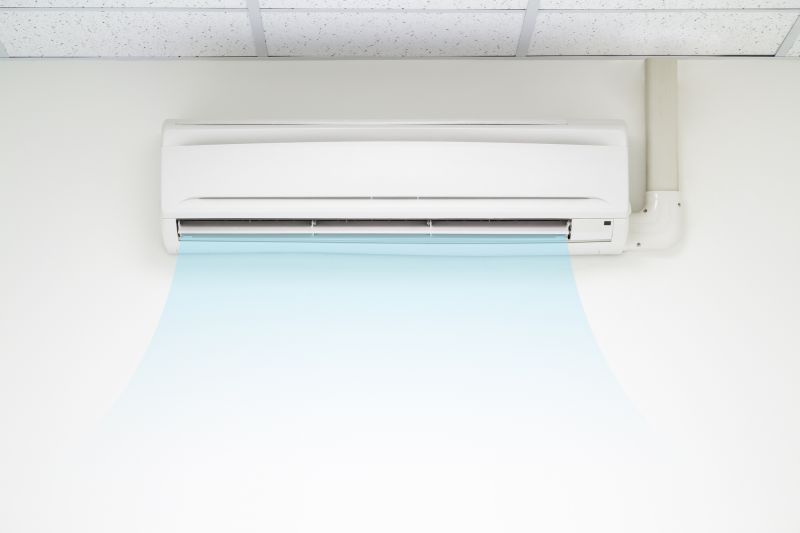Favorite Accessories For Simplified Split Ac Installations
Discover must-have accessories that streamline the installation process and improve the overall setup quality.
 Installing a split air conditioning system involves more than just placing the indoor and outdoor units; it requires a selection of compatible products to ensure optimal performance and longevity. Essential components include mounting brackets, insulations, drain pipes, and electrical wiring accessories, each designed to facilitate a smooth installation process. Properly chosen products can help prevent common issues such as leaks, electrical faults, or inefficient cooling, making the installation safer and more reliable.
Installing a split air conditioning system involves more than just placing the indoor and outdoor units; it requires a selection of compatible products to ensure optimal performance and longevity. Essential components include mounting brackets, insulations, drain pipes, and electrical wiring accessories, each designed to facilitate a smooth installation process. Properly chosen products can help prevent common issues such as leaks, electrical faults, or inefficient cooling, making the installation safer and more reliable.
Types of Products For Split Ac Installations
Wall Mounting Brackets
Securely attach the indoor unit to the wall, providing stability and support during operation.
Insulated Piping Kits
Connect indoor and outdoor units with insulated pipes that prevent energy loss and condensation issues.
Drainage Pipes and Traps
Ensure proper drainage of condensate to prevent water leaks and damage.
Electrical Wiring Accessories
Connect power safely with compatible wiring, connectors, and circuit protectors.
Remote Controls and Sensors
Operate and monitor the system remotely for convenience and efficiency.
Vibration and Noise Dampers
Reduce operational noise and vibrations for quieter functioning.
Outdoor Unit Stands
Elevate outdoor units to prevent flooding and improve airflow.
Cover and Insulation Materials
Protect piping and units from environmental elements and improve insulation.
Flexible Connection Hoses
Allow for easier connections between indoor and outdoor units with flexible hoses.
Leak Detection Devices
Identify refrigerant leaks early to prevent system inefficiencies.
Conduit and Cable Management
Organize electrical cables for safety and aesthetic appeal.
Thermostats and Control Panels
Enhance temperature regulation and system control options.
Popular Choices
Widely used for various indoor unit installations, offering reliable support and easy setup.
Commonly selected for efficient thermal insulation and durability.
Popular for extending condensate drainage lines safely.
Trending for enhanced convenience in system operation.
Preferred for their adaptability and ease of installation.
Chosen for reducing noise and vibrations during operation.
Commonly used to elevate outdoor units for better airflow.
Popular for protecting outdoor units from environmental elements.
Frequently selected to organize electrical wiring neatly.
Trending for remote control and smart home integration.
When selecting products for split AC installation, it is important to consider compatibility with the specific unit size and type, as well as the installation environment. Durable materials that withstand temperature fluctuations and humidity are preferable. Additionally, accessories like flexible piping and insulated covers can enhance the efficiency of the system, reducing energy consumption and operational noise. Investing in quality installation products can also simplify maintenance and troubleshooting in the future.
Professional installation often involves a combination of these products, and choosing the right components can significantly impact the overall performance of the air conditioning system. It is advisable to refer to manufacturer guidelines and seek expert advice when selecting installation accessories, ensuring that all parts work harmoniously together. Whether for residential or commercial settings, a well-planned installation setup can contribute to a comfortable indoor climate and energy-efficient operation over time.
Key Buying Considerations
- Compatibility with your specific split air conditioning model and size.
- Material durability, especially for outdoor components exposed to weather.
- Ease of installation and whether professional help is recommended.
- Insulation quality of piping and covers to prevent energy loss.
- Adequate support and mounting options for indoor units.
- Proper drainage solutions to prevent water leaks and damage.
- Electrical safety features, including circuit protection and proper wiring accessories.
- Noise reduction features such as vibration dampers and insulated piping.
- Environmental conditions of installation site, like exposure to rain or direct sunlight.
- Availability of replacement parts and accessories for future maintenance.
- Compliance with local building codes and safety standards.
- Ease of access for maintenance and repairs.
- Compatibility with remote controls or smart home systems if desired.
- Cost considerations balanced with quality and durability.
- Customer reviews and feedback on reliability and ease of use.
This page contains affiliate links. We may earn a commission if you make a purchase through these links, at no additional cost to you.
